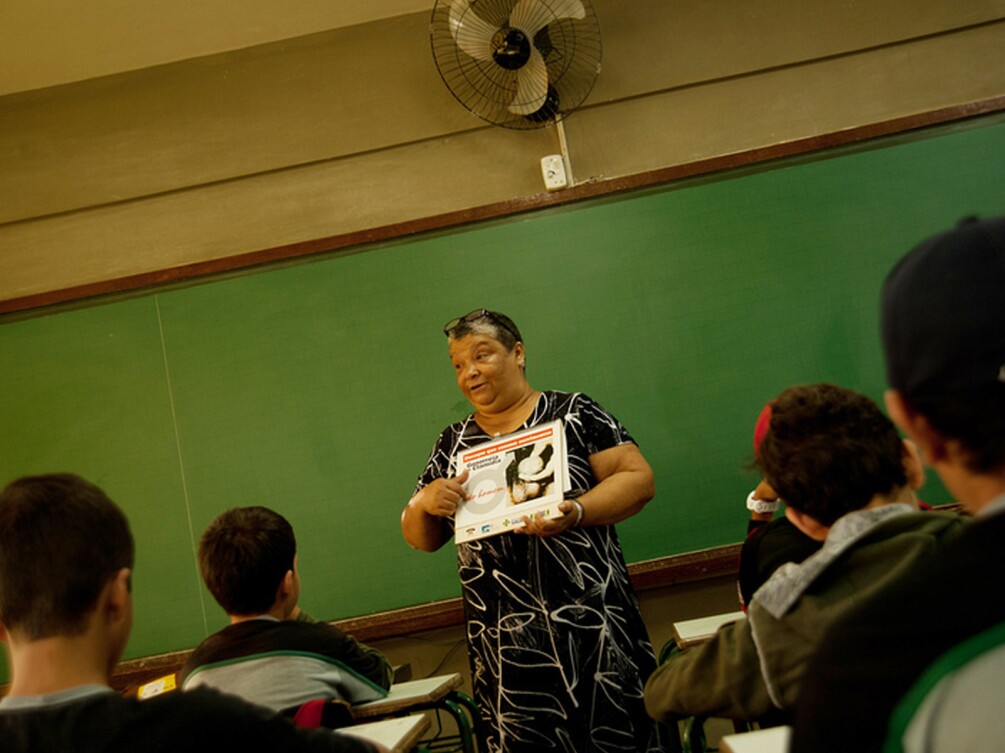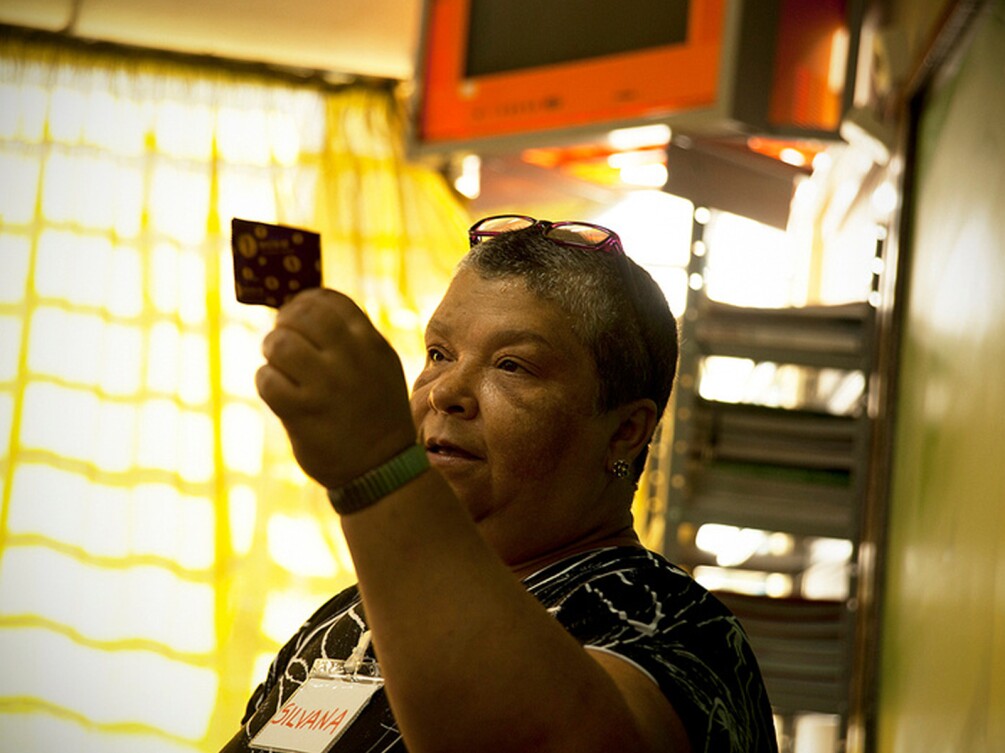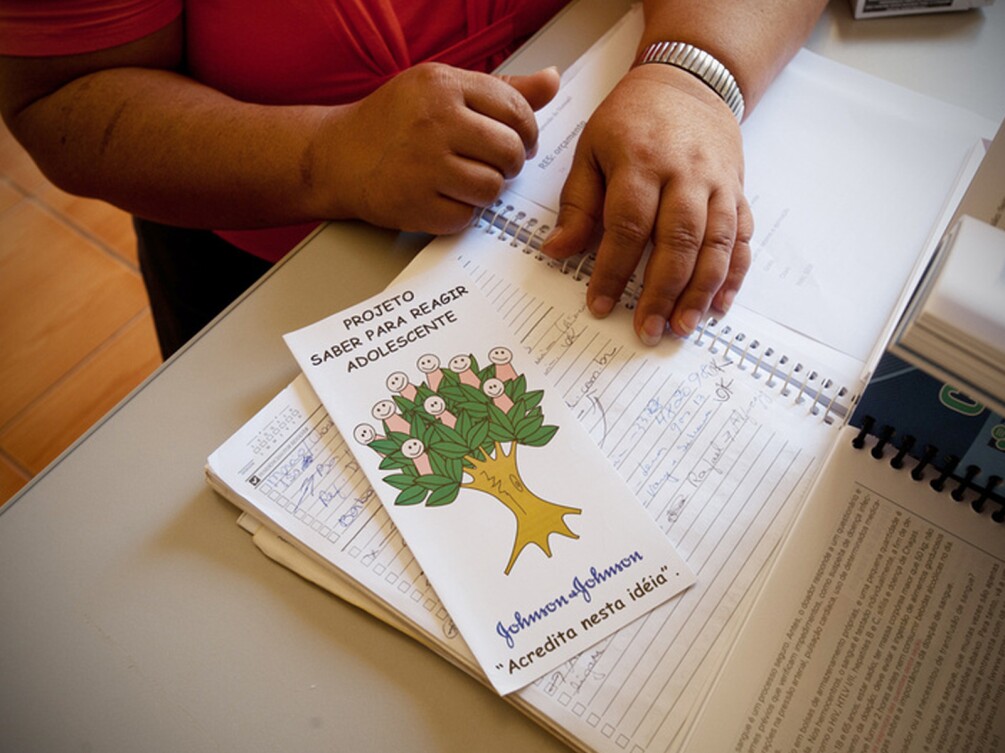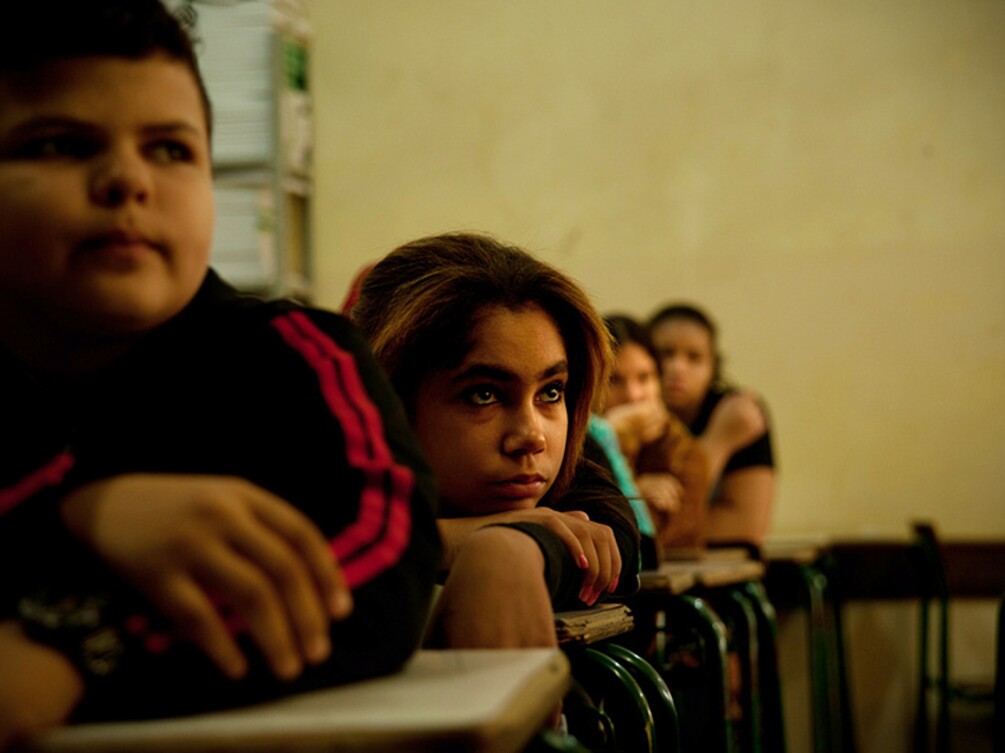Photo essay submitted by: Associação Londrinense Interdisciplinar de Aids
The youth of Brazil are not alone in the challenges they face. Violence, unplanned pregnancy, sexual exploitation and drug abuse are not uncommon. To make matters even more difficult, the Brazilian Ministry of Health reports that the rate of HIV infection among youth and young adults has slowly increased since the AIDS epidemic first reached the country in the 1980s. According to Ministry of Health data, around 3,500 Brazilians between the ages of 12 and 24 years old are infected with HIV every year.
To reverse this worrying trend, the Associação Londrinense Interdisciplinar de Aids (ALIA), with support from Johnson & Johnson, began a project known as Saber para Reagir (“knowing when to react”) targeting the youth of Londrina. Londrina, a city in the southern state of Paraná, is burdened by particularly high rates of poverty, violence, and drug abuse. Saber para Reagir trains teachers to implement a robust curriculum designed to equip students with the knowledge and life skills needed to make healthy life choices. The program prepares youth to manage their thoughts and emotions around issues including puberty, gender, diversity and individuality.

Since its beginnings in 2006, Saber para Reagir has trained 170 educators and reached more than 9,000 students. During interactive classroom sessions, students learn about issues around sexuality and gender, the importance of tolerance, the dangers of drug abuse, and how to avoid risky behaviors that may lead to HIV and other sexually transmitted infections. The program is modelled to prepare youth to make a lifetime of positive choices and reduce the possibility of HIV infection.

Sex education and HIV prevention remain controversial topics in Brazil. However, ALIA is committed to succeed and continues its youth programming in the hopes of growing an HIV-free generation better prepared to deal with the challenges of adulthood. Many of ALIA’s trainers are HIV positive and share their own stories to inspire youth to take ownership of their health and steer away from risky behaviors that may lead to HIV infection.

“Programs promoting education on how to protect one’s self against sexually transmitted diseases and unplanned teenage pregnancy are fundamental for our youth to succeed in the society we live in today,” says Marineide Soares de Lima, a Philosophy Professor at Universidade Estadual de Londrina. “Schools, as centers for youth development and where our children form their own opinions and values, play an important role in facilitating this kind of information sharing.”

“The Saber para Reagir project was designed to function within the educational system and provide youth with a broad understanding of human sexuality and reproductive health, and all that makes us each different and unique. We also want the students to have a solid understanding of what type of behaviors can put them at risk of HIV infection so they know how to care for themselves and others,” says Paulo Wesley Faccio, a Sexual and Reproductive Health Educator at ALIA.

“When Saber para Reagir first came to our school to train the educators, there were many doubts,” said Lidiane Barbosa, an Educational Agent at Colégio Estadual Lucia Barros Lisboa. “But ALIA took the time to answer questions and successfully taught us to appreciate the value of this kind of curriculum. The meetings provided for open and honest conversations with the students. Today, I can feel a great change in the mentality of colleagues and students who participated in the program. They are more understanding and respectful of individuals’ health needs and priorities,” Lidiane says.
One classroom at a time, ALIA is teaching Brazilian youth to advocate for their own health and that of others, building a society more prepared to prevent HIV infections.
